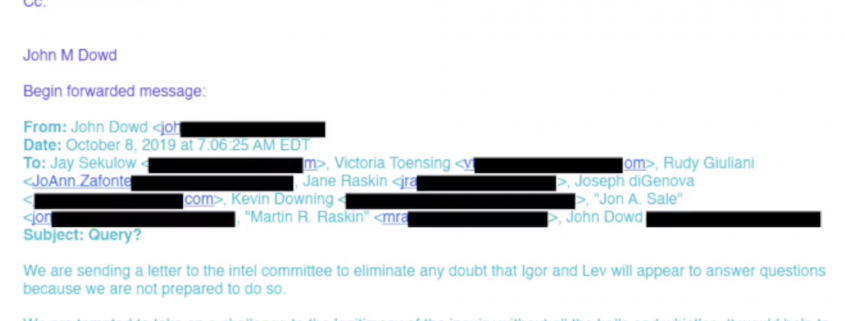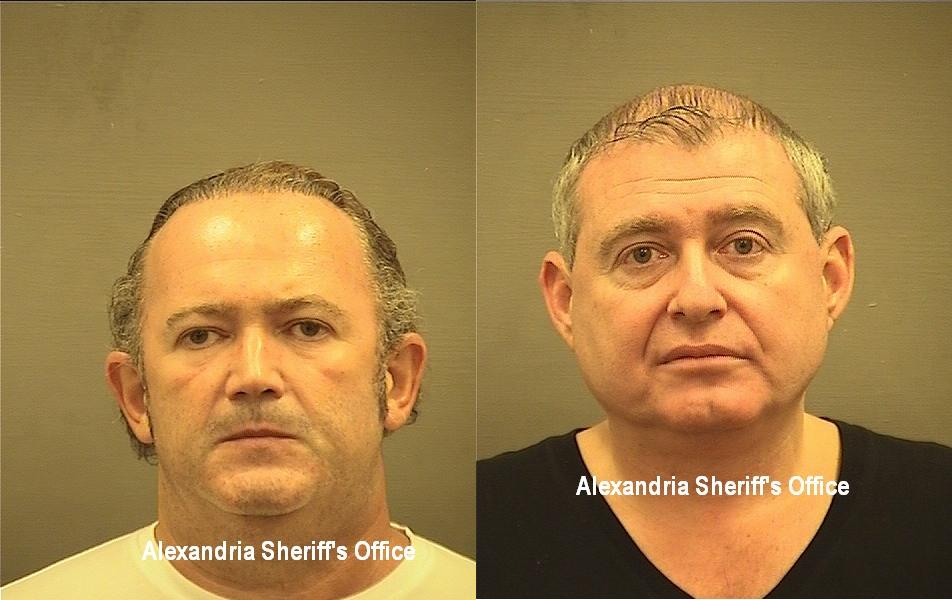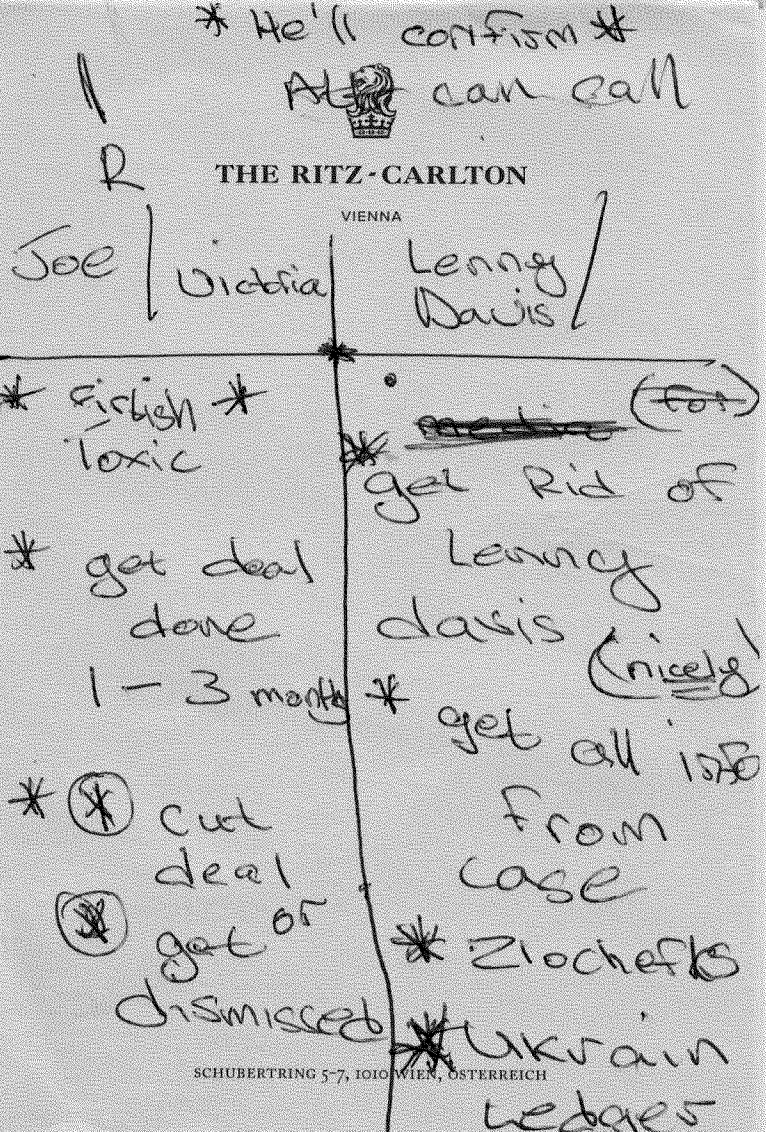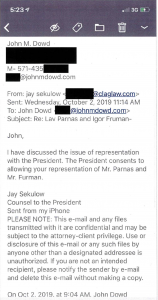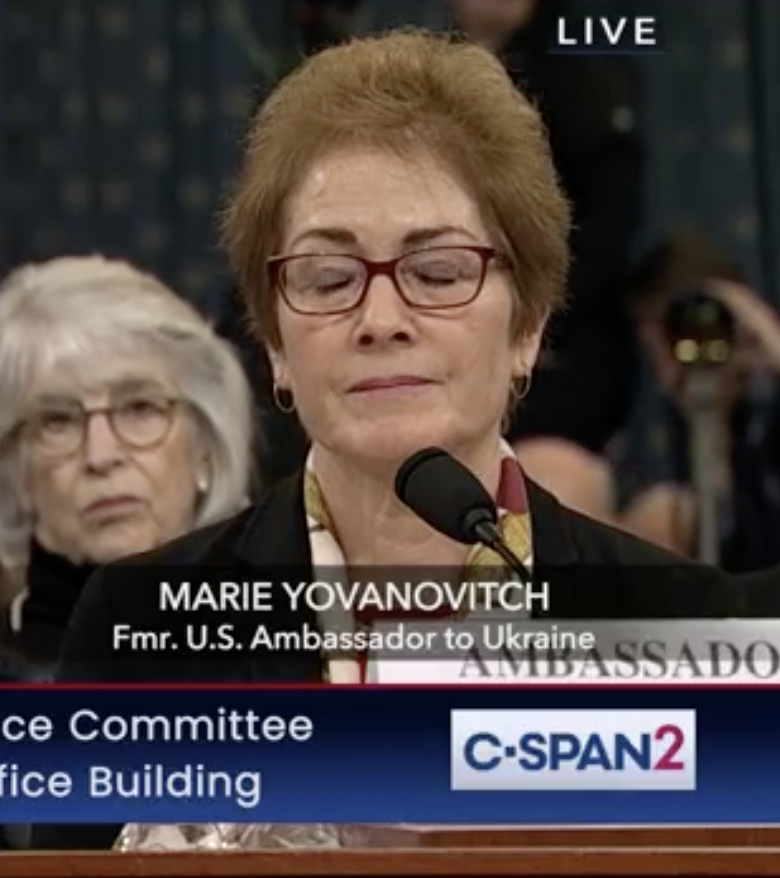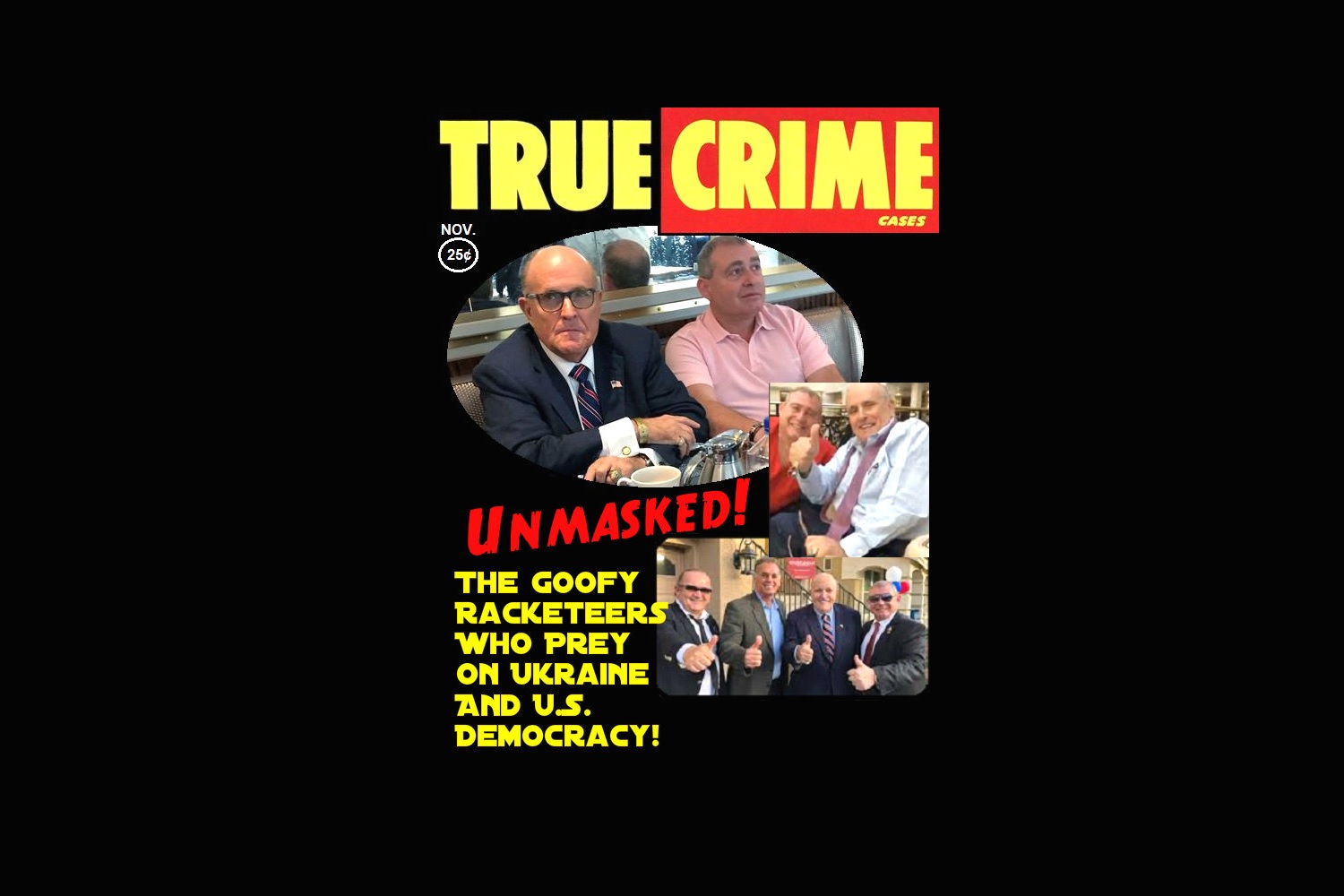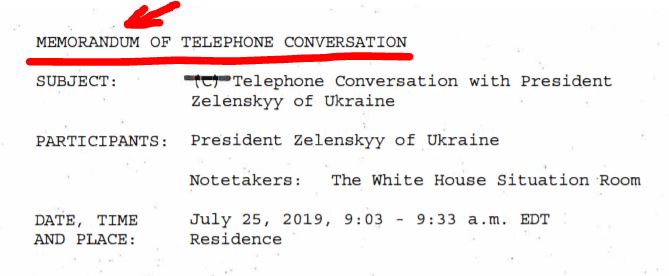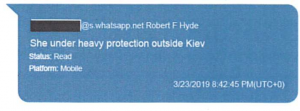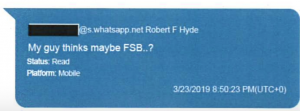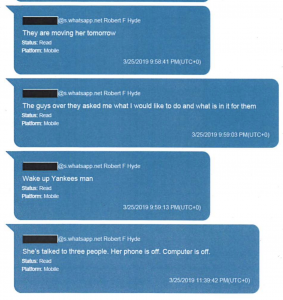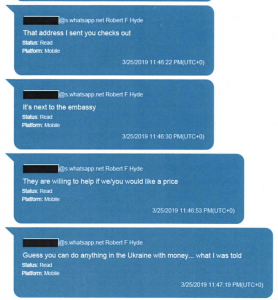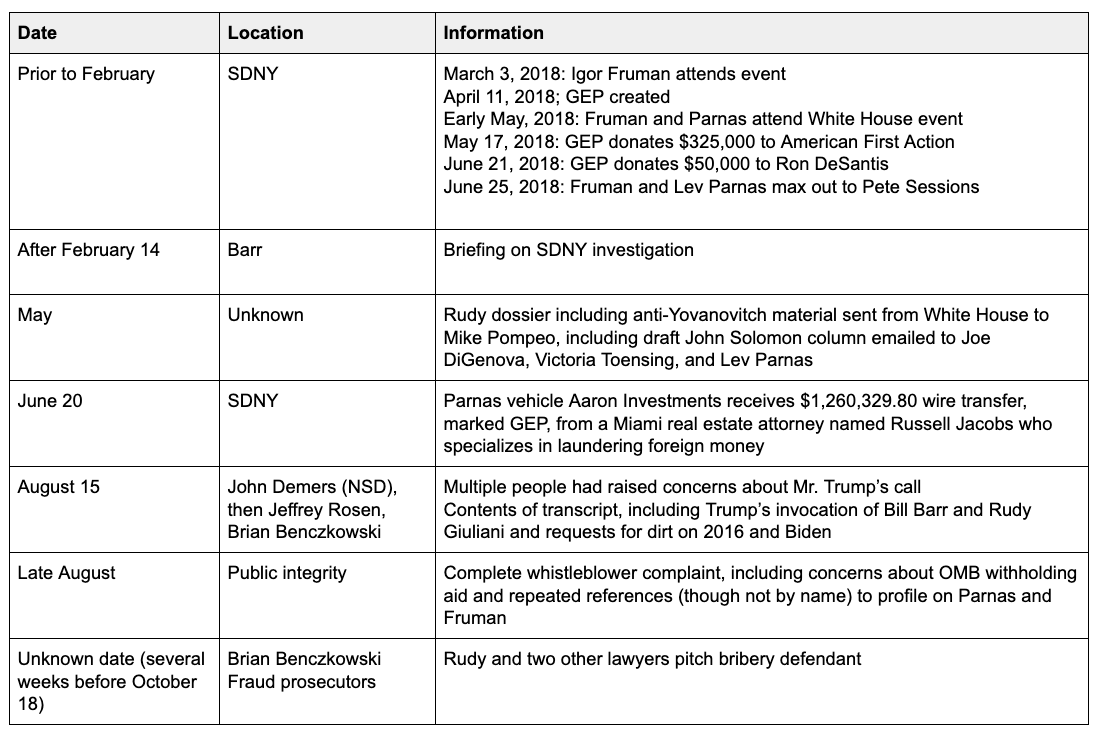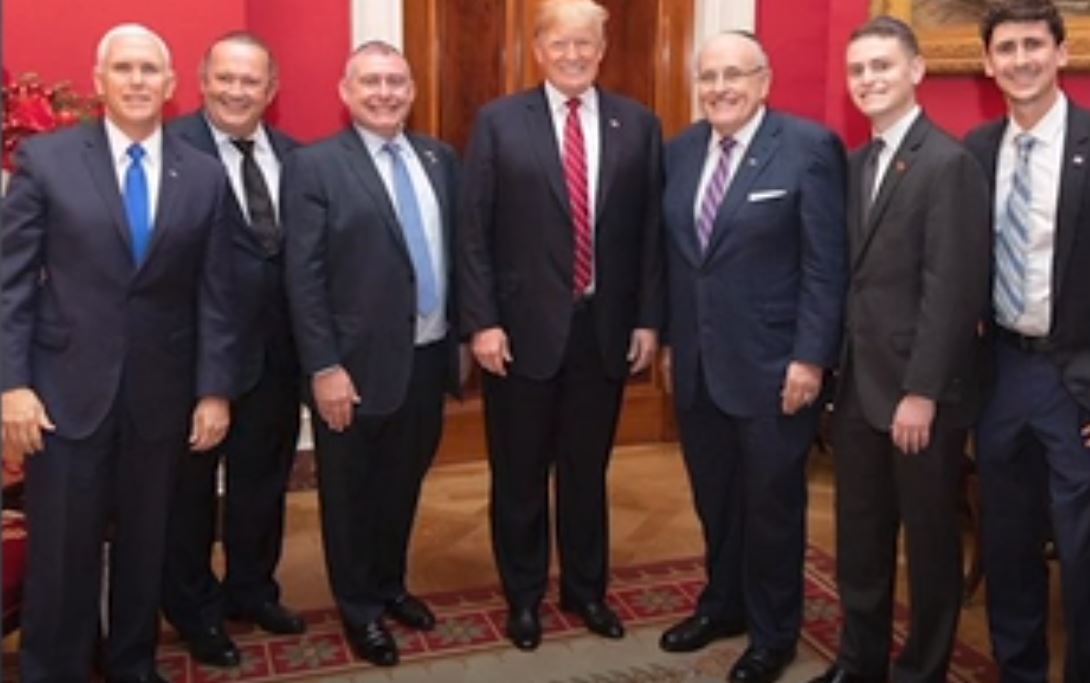Kevin Downing Was “in the Loop” of Silencing Lev Parnas on October 8
Lev Parnas’ lawyer, Joseph Bondy, continues his attack on those who scorned his client.
This afternoon, he posted an email dated October 8, 2019 7:06 AM that John Dowd — then ostensibly representing Parnas and Igor Fruman — sent to update a bunch of lawyers that his clients would send, “a letter to the intel committee to eliminate any doubt that Igor and Lev will appear to answer questions because we are not prepared to do so.”
Dowd, of course, had already first called, on September 30, then sent a letter, on October 3, to convey the same message. But he seemed to feel the need to do so again on October 8 (which may be part of the reason the White House released the intemperate Trump letter signed by White House Counsel Pat Cipollone).
He forwarded the email, with all recipients visible, to his clients a minute later.
The next day, Parnas and Fruman met with Rudy Giuliani at Trump hotel for lunch. That afternoon, Bill Barr visited SDNY. Hours later, Parnas and Fruman tried to board a plane to go to Vienna to tape an interview between Sean Hannity and Dmitro Firtash. They were arrested on charges that had been processing away in SDNY for months, ostensibly because SDNY feared they would flee, even though they had left the country numerous times while that investigation proceeded. Then, probably after Parnas and Fruman were arrested, Barr visited Rupert Murdoch personally. Hannity never went to Vienna. Nor did Rudy, who was supposed to meet Parnas and Fruman the next day.
According to public reports at the time, because they got arrested in EDVA, they needed a local lawyer to deal with their bail, so Paul Manafort’s lawyer, Kevin Downing stepped in. Then, what must be the next day, Parnas fired both Dowd and Downing, because — he believed — they were telling him to take the fall for the President.
MADDOW: Mr. Dowd was your attorney for a time and then you changed attorneys.
PARNAS: I fired him in jail.
MADDOW: You fired him when you were in jail?
PARNAS: Yes.
MADDOW: What happened there?
PARNAS: And Mr. Downing. Basically, when we were arrested, obviously, I had nowhere else to call. I didn`t know – we just retained Dowd and Downing. So I called Downing to come there and I started seeing in the process of the bail stuff the way things were going on that they were more concentrating on – I didn’t feel that they were trying to get me out, and at that point, I had a meeting with John Dowd and Downing inside the jail.
And John Dowd just instead of comforting me and, you know, trying to calm me down, telling me, like, it’s going to be OK, like, don’t worry, basically start talking to me like a drill sergeant and telling me, giving me orders, like, you know, be a good boy, like, you know.
MADDOW: He said “be a good boy”?
PARNAS: No, I don’t – I don’t want to quote him exactly on what the words, what he used in that because it was a while ago. I don’t remember exactly.
But it was – it was his condescending attitude toward basically, like, who do you think you are telling the president or Giuliani or anybody to, like, come out and because I – one of the things I said, I said, I can’t believe nobody is coming out in our defense and saying we didn’t do anything wrong, we’re good citizens, you know, we work.
And basically word for word, and then I said, if you don’t get out of here right now, something bad is going to happen because I don’t want to see the two of you.
And at that point, Downing hit the emergency button and the security took me out and took them out.
MADDOW: This is a very heated confrontation. You told Downing and Dowd to get out.
PARNAS: I threw them out.
MADDOW: Were they telling you to sacrifice yourself in order to protect the president?
PARNAS: That’s what I felt.
Here’s the thing. Downing was not — at least not publicly — representing Parnas and Fruman until and because they were detained in EDVA.
But he — Paul Manafort’s lawyer — was included in that email from Dowd on October 8, a day before they were arrested along with Trump’s lawyers, Victoria Toensing and Joe DiGenova, and Rudy’s then lawyer Jon Sale.
Lev Parnas appears to believe he was arrested because it was a better way to keep him silent than telling Congress no.
And the inclusion of Kevin Downing in that October 8 email suggests he may well be right.


